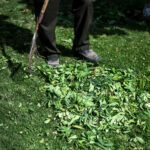The Essence of Qatar: Perfume Traditions and Modern Scents
Qatar, a jewel in the heart of the Arabian Peninsula, is renowned not just for its breathtaking landscapes and rich cultural heritage but also for its deep-rooted traditions in the world of perfumery. The allure of fragrances here is an intricate tapestry woven from centuries of history, cultural exchanges, and modern innovations. In this article, we delve into the essence of Qatar’s perfume traditions, explore the evolution of modern scents, and guide you through the best places to find exquisite fragrances, including popular options like Ajmal perfumes.
A Rich Heritage: The Historical Significance of Perfume in Qatar
Ancient Roots of Fragrance
Perfume has played a crucial role in the lives of Qatar’s inhabitants for centuries. Historical texts suggest that the use of perfumes in the Arabian Peninsula dates back to ancient times when natural ingredients like oud, musk, and various flowers were used to create fragrant oils. These scents were not merely for personal adornment; they were integral to cultural practices, religious rituals, and social interactions.
In Bedouin culture, fragrances were a mark of hospitality. When welcoming guests, it was customary to offer them aromatic scents, reflecting generosity and warmth. This tradition continues today, with perfumes symbolizing status and sophistication in Qatari society.
The Role of Natural Ingredients
Traditional Qatari perfumes often feature ingredients sourced from the region’s diverse flora and fauna. One of the most sought-after materials is oud, derived from the agarwood tree. Known for its rich, deep aroma, oud has been revered in Middle Eastern cultures for its unique scent and therapeutic properties.
Other commonly used ingredients include:
- Musk: Extracted from the glands of the musk deer, this fragrance adds a warm, animalistic quality to perfumes.
- Amber: A resinous scent that provides depth and warmth, often used in oriental fragrances.
- Rose: Particularly the Damask rose, valued for its sweet, floral notes, adding elegance to many perfumes.
Traditional Craftsmanship
The art of perfumery in Qatar is not just about blending scents; it is a craft passed down through generations. Master perfumers, known as “attar makers,” possess an intimate knowledge of the properties of each ingredient and the ability to create harmonious blends. Visiting a local perfume shop in Souq Waqif offers a unique opportunity to witness this artistry firsthand, as you can observe the meticulous process of scent creation and even customize your fragrance.
Modern Perfume Trends in Qatar
The Rise of Contemporary Scents
While traditional perfumes continue to hold a cherished place in Qatari culture, modern fragrances have gained popularity, especially among younger generations. These contemporary scents often blend traditional ingredients with innovative notes, creating a unique olfactory experience that appeals to diverse tastes.
Global Influences and Trends
As Qatar becomes increasingly cosmopolitan, so too do its perfume offerings. The influx of international brands has introduced a wider range of scents, from fresh and fruity to spicy and gourmand. This blend of global influences allows consumers to explore various olfactory landscapes while still honoring their heritage.
Key Features of Modern Perfumes
- Diversity of Scents: Modern perfumeries offer a variety of fragrances catering to all preferences, from light and refreshing to bold and intense.
- Gender Fluidity: Many contemporary perfumes break away from traditional gender norms, offering unisex options that appeal to all.
- Eco-Consciousness: There is a growing trend towards sustainability in perfumery, with brands focusing on ethically sourced ingredients and environmentally friendly packaging.
Popular Brands and Offerings
Some of the most recognized perfume brands in Qatar include both local and international names. Ajmal Perfumes, a leading brand in the region, combines traditional practices with modern marketing strategies, making it a household name in Qatari fragrance culture.
Ajmal Perfumes: A Deep Dive
Founded in 1951, Ajmal has become synonymous with quality and innovation in the world of perfumery. The brand emphasizes a blend of traditional Arabic fragrances with contemporary aesthetics, catering to a wide range of customers.
- Ajmal Perfumes Qatar Price: The pricing of Ajmal fragrances varies significantly based on the collection and type. While you can find affordable options starting at around QAR 100, luxury lines can reach prices upwards of QAR 1,000.
- Ajmal Perfumes Qatar Near Me: With multiple outlets spread across Doha and the surrounding areas, finding an Ajmal store is convenient. Additionally, many shopping centers feature Ajmal counters, ensuring accessibility for customers.
Where to Find Perfumes in Qatar
Souq Waqif: A Perfume Paradise
When it comes to exploring fragrances in Qatar, few places rival the charm of Souq Waqif. This traditional market offers a vibrant atmosphere, filled with the aromas of spices, incense, and, of course, perfumes. Here, you can find an array of shops specializing in both traditional and modern scents.
Must-Visit Perfume Shops in Souq Waqif
- Al Haramain Perfumes: A renowned name in the region, Al Haramain offers a vast selection of perfumes, including traditional attars and modern eau de parfums.
- Ajmal Perfumes: With its rich heritage and contemporary offerings, Ajmal’s store in Souq Waqif is a must-visit for anyone looking to explore the essence of Qatari fragrances.
- Oud Elite: Specializing in oud-based fragrances, Oud Elite provides customers with an opportunity to experience the depth and richness of traditional scents.
- Al Rahba Perfumes: Known for its exquisite selection of attars and bespoke fragrance options, Al Rahba is perfect for those seeking something unique.
Other Notable Places for Perfume Shopping
While Souq Waqif is a highlight, other areas in Doha also offer excellent options for purchasing perfumes.
- Villaggio Mall: Home to various international and local perfume brands, Villaggio Mall combines luxury shopping with a unique architectural experience.
- The Mall: Another popular shopping destination, The Mall features a variety of perfume stores, including high-end international brands.
- Lulu Hypermarket: For those looking for convenience, Lulu offers a selection of perfumes at competitive prices, making it a popular choice among locals.
Online Shopping for Perfumes
In recent years, online shopping has revolutionized how people buy fragrances in Qatar. Several platforms offer extensive collections of perfumes, perfumes offer in qatar allowing consumers to browse and purchase from the comfort of their homes.
- Qatar Online Shopping: Websites like Souq.com and Carrefour provide an array of options, including both international and local brands.
- Brand Websites: Many perfume brands, including Ajmal, have their online shops, making it easy to explore their latest offerings and deals.
Perfume Offers in Qatar
Seasonal Discounts and Promotions
Qatar’s vibrant retail environment often features seasonal sales and promotions, especially during festive periods such as Ramadan and Eid. These occasions present an excellent opportunity to purchase perfumes at discounted rates.
- Ramadan Promotions: Many retailers offer special promotions on perfumes, including gift sets and exclusive fragrances. This is the perfect time to purchase gifts for friends and family.
- Holiday Sales: Christmas and New Year’s sales often include limited-time offers on popular perfume brands, enticing customers with attractive pricing.
Loyalty Programs and Memberships
Many perfume stores in Qatar, including Ajmal and Al Haramain, offer loyalty programs that reward frequent shoppers with discounts, exclusive access to new releases, and special promotions. Signing up for these programs can enhance your shopping experience while saving money on your favorite fragrances.
The Cultural Significance of Perfumes in Qatar
A Symbol of Hospitality
In Qatari culture, the act of gifting perfume signifies generosity and respect. It is customary to offer guests a spritz of perfume or an attar upon arrival as a sign of welcome. This practice underscores the importance of scent in social interactions and highlights its role in hospitality.
The Connection Between Fragrance and Identity
Perfume is an integral part of personal identity in Qatar. Many individuals choose fragrances that resonate with their personality, cultural background, or even their mood. For Qatari women, the choice of perfume can reflect their style and elegance, while men often opt for strong, bold scents that convey confidence.
Celebrating Special Occasions
Perfumes are also an essential part of celebrations in Qatar. Whether it’s weddings, religious festivals, or personal milestones, special fragrances are often chosen to commemorate these events. Gifting perfumes during such occasions reinforces relationships and conveys heartfelt sentiments.
Conclusion
The essence of Qatar is beautifully captured through its rich perfume traditions and the modern scents that have emerged in recent years. From the historical significance of oud and attar to the contemporary innovations of brands like Ajmal, Qatar offers a unique fragrance landscape that is both diverse and enchanting.
Whether you’re exploring the vibrant atmosphere of Souq Waqif or shopping online, the world of perfumes in Qatar is a treasure trove waiting to be discovered. With various options available, including traditional attars and modern fragrances, every scent tells a story, echoing the rich cultural heritage of this beautiful nation.
As you journey through the fragrance world, remember to embrace the essence of Qatar—where tradition meets modernity, and every drop of perfume holds the promise of memories yet to be created.



